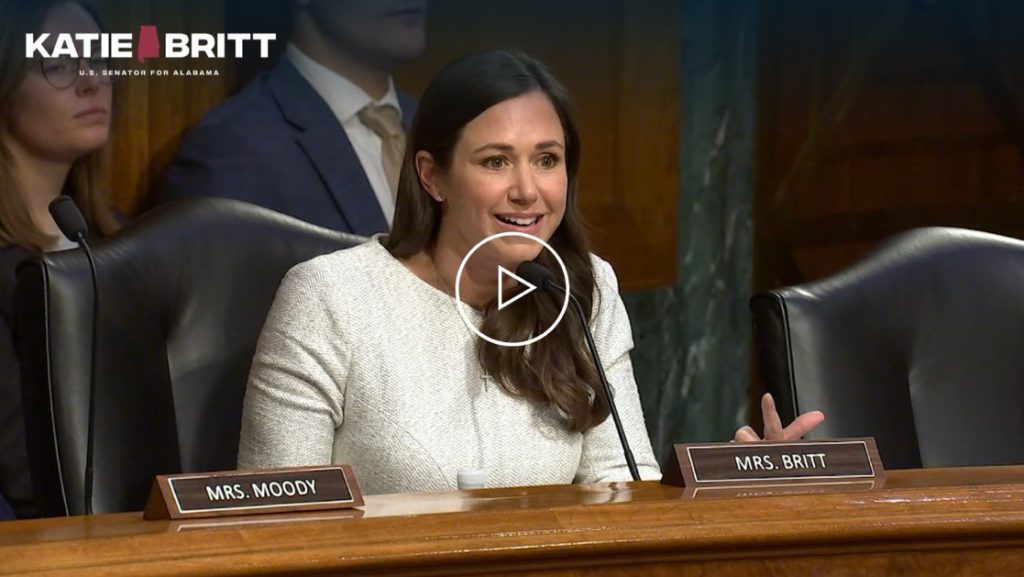U.S. Senator Katie Britt Attends Judiciary Hearing, Highlights Skyrocketing Seed and Fertilizer Input Prices, Impact on Agriculture Industry
WASHINGTON, D.C. – U.S. Senator Katie Britt (R-Ala.) participated in a Senate Judiciary Committee hearing to discuss the extent to which consolidation within the agriculture products industry has contributed to soaring input costs across the nation. Senator Britt and her colleagues heard from farmers, policy experts, and agriculture industry professionals, including Andy LaVigne, President and CEO of the American Seed Trade Association.

Senator Britt highlighted the importance of the agricultural industry in the state of Alabama, saying, “Agriculture is the bedrock of Alabama’s economy. So, 1 in 5 jobs in our state are tied to the agriculture industry. I am so proud of our farmers and what they do, knowing that they feed and clothe people not just coast to coast, but across the world.”
She acknowledged rising production costs and their consequences on our rural communities and national security: “Alabama farmers are acutely familiar, though, with the impact of skyrocketing input costs and what that’s done [to their bottom lines.] When we look at the last four years, knowing that input costs have gone up across the board, but that our agriculture community has been hit the hardest, and just knowing that farmers are experiencing record breaking yields, but yet, losing hundreds of dollars an acre … when you try to square these things up … we have to do something.
“In fact, based on historical yields, every major row crop from peanuts to cotton to soybeans will be produced at a loss in 2025. And so, food security is national security, we say that all the time … And if farmers are not thriving, our rural communities are not either. And so, there is so much at stake in making sure that we get this right.”
The Senator asked Mr. LaVigne about pressures the seed industry is currently facing: “There are real concerns with the limited number of companies that provide seed, fertilizer, and crop protection products to our farmers. But that consolidation doesn’t stop with inputs. We also see the same consolidation in packers, in equipment manufacturers, and in farms to a certain extent. Crop inputs, suppliers, manufacturers, and farmers have generally been forced to grow larger to achieve economies of scale and increase productivity while attempting to decrease costs …
“We’ve seen the consolidation, but instead of prices going down for our farmers, we’ve actually seen the opposite. Can you speak to some of the outside pressures that have prevented the industry from achieving true economies of scale?”
Mr. LaVigne responded, “As we continue to innovate in the agriculture industry and especially in the seeds side, the cost of the regulatory compliance … has increased dramatically. And working with the grain industry to ensure that the markets that we export to, or our farmers export to, are open and have transparent processes to review those new products that come to market has been extreme. We’ve seen that in China …
“I think we’ve got several regulations in place that are out of date … Over the last 30 years, under the coordinated framework that has not evolved, we’ve not changed that process to make it, more efficient for new companies to come into the marketplace, as well as new products and it has become harder and less science based,” he continued.
Senator Britt’s full remarks can be viewed here.
###